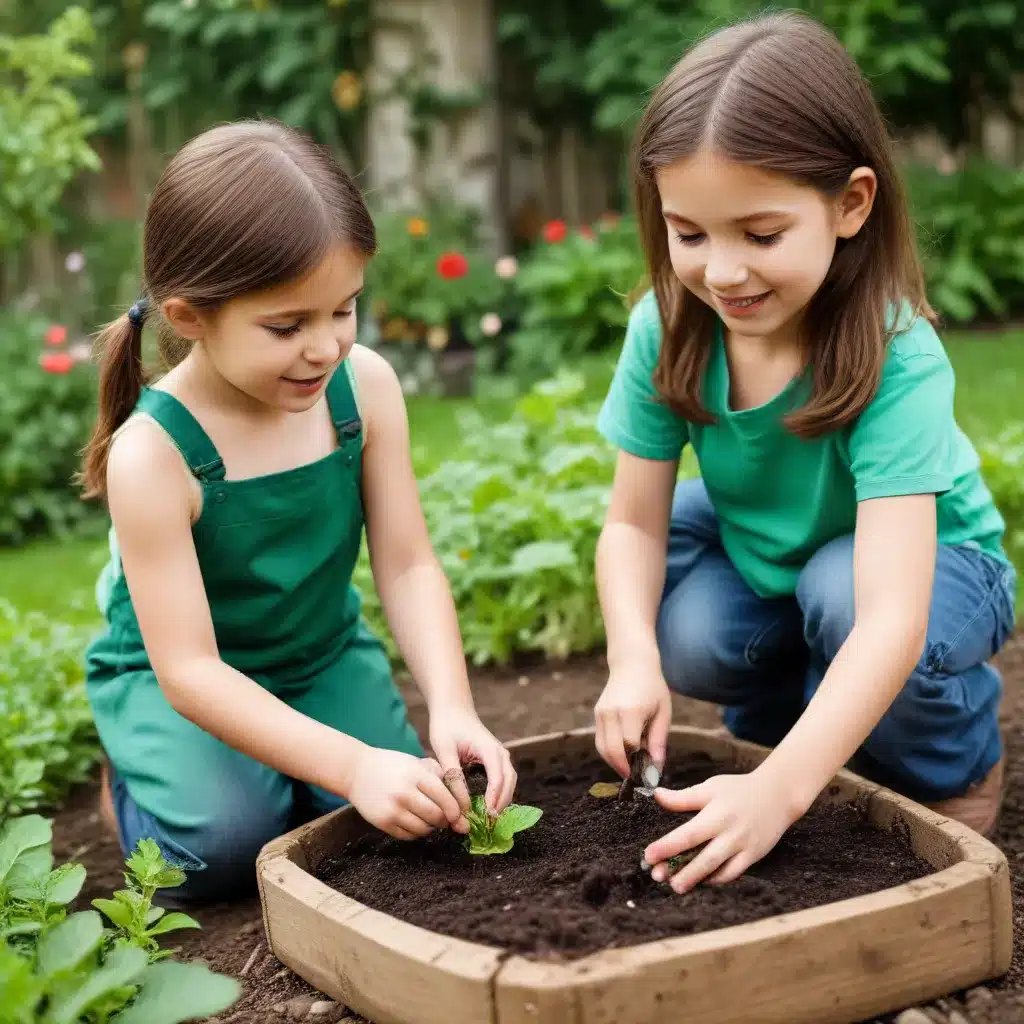
Gardening is a gateway to a world of wonder and discovery for young minds. At Crooked Pines Farm, we believe that introducing children to the joys of cultivation cultivates more than just green thumbs – it fosters a deep connection to nature, a sense of responsibility, and a lifelong appreciation for the environment.
In this comprehensive article, we’ll explore a variety of engaging gardening activities that can spark your child’s curiosity, ignite their creativity, and help them develop essential life skills. Whether you have a sprawling backyard or a small patio, there are endless opportunities to nurture the budding gardeners in your life.
Hands-On Gardening Experiences
The best way to cultivate a love for gardening in children is to get them directly involved in the process. Start by letting them help select the plants they want to grow, whether it’s vibrant sunflowers, juicy cherry tomatoes, or fragrant herbs. Involving them in the decision-making process will make them even more invested in the garden’s success.
Once the plants are chosen, guide your young gardeners through the process of planting seeds or seedlings. Watching the transformation from a tiny seed to a thriving plant is truly magical for children. Encourage them to carefully tend to their plants, watering them regularly and keeping an eye out for any signs of growth or pests. Weeding can also be a fun activity, as it teaches children to distinguish between desirable plants and unwanted invaders.
As the season progresses, your little ones will delight in observing the plants’ growth and development. Measuring the height of a sunflower or counting the number of tomatoes on a vine can instill a sense of responsibility and nurture their scientific curiosity.
Sensory Exploration in the Garden
Gardening is a multisensory experience that can captivate children’s attention and stimulate their senses. Encourage them to touch the soft, fuzzy leaves of lamb’s ear, feel the rough bark of a tree, or run their fingers through the dirt to experience its varying textures.
Invite your young gardeners to use their sense of smell to identify the aromatic herbs or flowers in the garden. Can they differentiate between the fresh, minty scent of peppermint and the earthy fragrance of lavender? Tasting the fruits and vegetables they’ve grown can also be a thrilling experience, further strengthening their connection to the natural world.
Fostering a sensory-rich garden environment can spark your child’s imagination and creativity. Encourage them to design their own unique plant labels or garden markers using found materials, or create nature-inspired artwork, such as pressed flower creations or leaf rubbings.
Garden-Themed Crafts and Projects
Gardening isn’t just about the plants themselves; it’s also an opportunity to engage your child’s artistic and problem-solving skills. Designate a special area in the garden for your young gardeners to explore their creativity.
Help them decorate their own planter boxes or container gardens using vibrant paints, stickers, or other embellishments. Encourage them to design a themed garden, such as a pizza garden with tomatoes, basil, and oregano, or a rainbow garden filled with a variety of colorful flowers.
Older children might enjoy more complex projects, such as building a DIY bird feeder or a butterfly house. These activities not only beautify the garden but also teach valuable lessons about the importance of creating habitats for wildlife and supporting pollinators.
Encouraging Curiosity and Learning
Gardening is a natural way to spark children’s curiosity and foster a deeper understanding of the natural world. Encourage your young gardeners to conduct simple experiments, such as observing how different soil types or watering schedules affect plant growth.
Spend time in the garden observing the diverse array of insects and other creatures that call it home. Identify the pollinators, like bees and butterflies, that visit your flowers, and discuss their vital role in the ecosystem. Use field guides or online resources to help your children learn about the life cycles of plants and the critters that inhabit the garden.
As your child’s interest and skills grow, consider introducing more advanced topics, such as composting, water conservation, or seed saving. These activities not only teach valuable lessons about sustainability but also empower your child to become an active steward of the environment.
Celebrating the Harvest and Beyond
Watching the fruits (or vegetables!) of their labor come to fruition is one of the most rewarding experiences for young gardeners. Plan a special harvest celebration where your children can pick, taste, and even cook with the produce they’ve grown. This hands-on experience will deepen their appreciation for the food they eat and the hard work that goes into its cultivation.
Encourage your children to keep a gardening journal to record their observations, successes, and challenges. This not only helps them develop important writing and drawing skills but also allows them to look back on their gardening journey with a sense of pride and accomplishment.
Connecting with like-minded families or joining a community garden project can further enrich your child’s gardening experience. Collaborating with others, sharing knowledge, and celebrating shared successes can foster a deep sense of community and inspire a lifelong love of gardening.
Remember, the journey of nurturing young green thumbs is as rewarding for parents as it is for the children. By engaging your child in the wonders of gardening, you’re not only cultivating their love for nature but also sowing the seeds for a lifetime of learning, responsibility, and environmental stewardship. So, grab your gardening gloves, and let the adventure begin!
If you’re ready to take your family’s gardening journey to the next level, be sure to visit Crooked Pines Farm for a wealth of resources, from seasonal farm-to-table recipes and DIY crafts to educational tips for kids and family fun activities. Together, let’s nurture the next generation of green thumbs!


